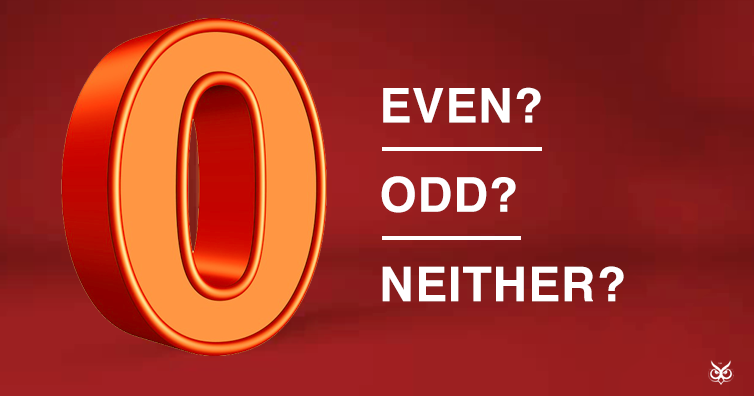When asked if zero is an even or an odd number, most people will consider it a trick question and quickly answer neither. But they are mistaken. Zero is an even number.
Here’s why.
To fully understand why, we need to speak a bit about mathematical parity – the rules that define how we split up integers into two categories: even numbers and odd numbers. Simply said, if a number is divided by 2, then it’s an even number, if not, it’s an odd number. But what does that actually mean? (the article continues after the ad)
It basically means that when a number is divisible by 2, the result must be an integer. For example, eight is divisible by 2 because 8÷2=4 which is a whole number, hence eight is an even number. Nine on the other hand, is not divisible by 2 because 8÷2=4.5 which is not a whole number which makes nine an odd number.
So what about zero?
When we divide 0 by 2, the result we get is also 0. Zero itself is an integer, therefore zero is classified as an even number. Though it looks confusing, when we actually break it down, some arithmetic will clear up the confusion surrounding the (even) number 0.
If you like what you read, then you will definitely love this one: If You Are Bad At Math It Doesn’t Necessarily Mean That You Have Poor Mathematical Skills
Photo: TheDigitalArtist / Pixabay
Photoshop: I’m A Useless Info Junkie
Sources: Is Zero an Even or an Odd Number? | Is Zero Even, Odd, or Neither?



